Xiaobu's run ended in the second round of the Shanghai Masters due to heatstroke; he revealed after the match that he will rest after playing at most one more tournament and will see everyone next year.
In the second round of the Shanghai Masters men's singles, Chinese player Bu Yunchaokete lost 4-6, 4-6 to the tournament’s 26th seed Dalderi, failing to advance to the last 32.
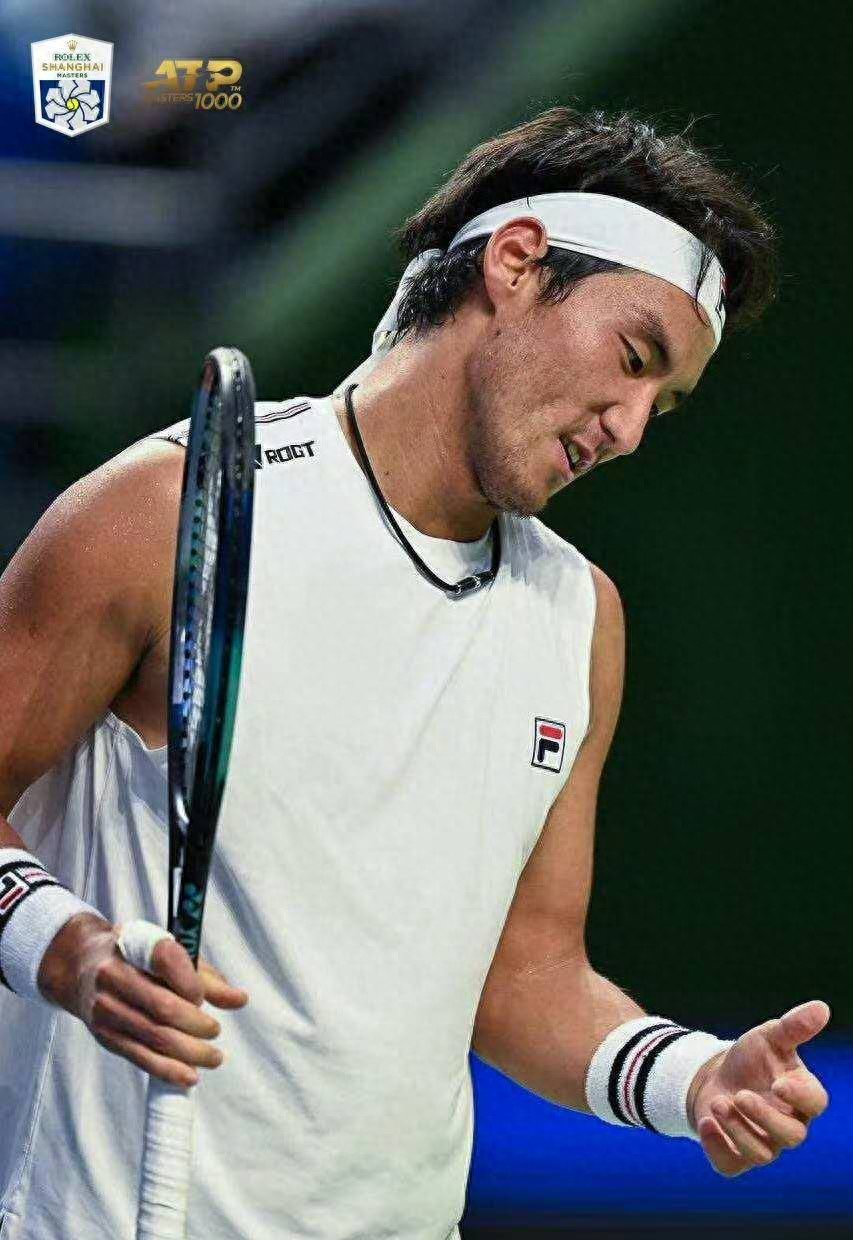
The match lasted for 1 hour and 30 minutes, and during the game, Bu Yunchaokete called for a medical timeout, clearly struggling physically. This defeat was also his second loss to the same opponent this year after the Rome tournament, both times due to physical reasons, which is very regrettable.
Actually, before this match, Bu Yunchaokete was not favored to win; pre-match data clearly highlighted the gap in their abilities. Dalderi, seeded 26th and ranked 30th in the world, held a significant ranking advantage over Bu Yunchaokete, who was ranked outside the top 110.
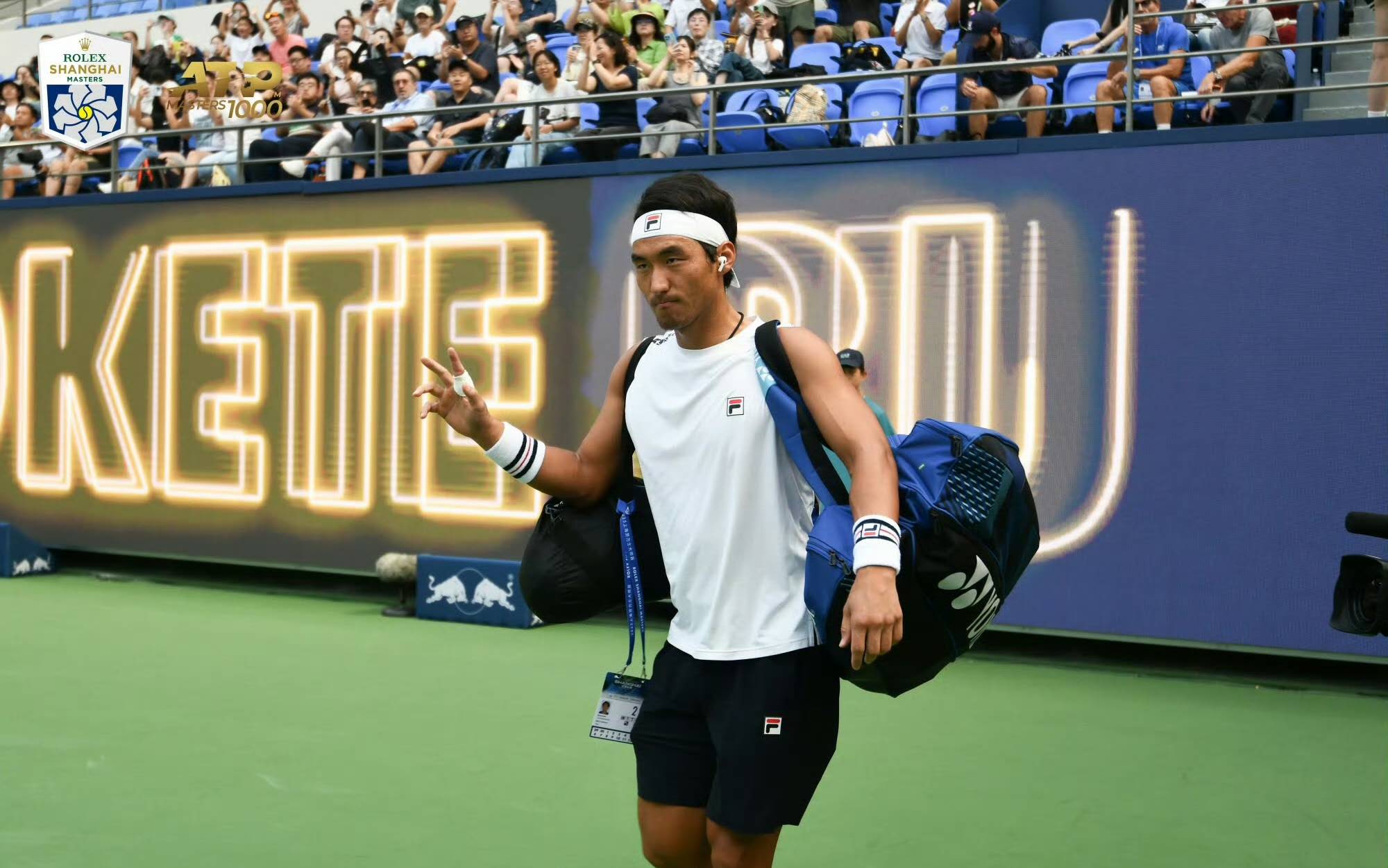
Additionally, their only previous encounter was in the first round of this year’s Rome tournament, where Bu Yunchaokete lost 0-2. Therefore, expectations from media and fans generally saw Bu Yunchaokete facing a huge challenge. After all, he was eliminated in the first rounds at both the Hangzhou and China Open tournaments this year, with only one win in the Chinese season so far.
From a technical perspective, Dalderi is known for his solid baseline play and tight defense. In contrast, Bu Yunchaokete’s strengths lie in his powerful serve and aggressive style, favoring net approaches and strong forehand strokes, which are especially effective on fast hard courts. Pre-match commentary suggested that to advance further, Bu Yunchaokete needed to use his backhand slice as a weapon and reduce risky second serves, as any double faults would be exploited by his opponent to widen the score gap.
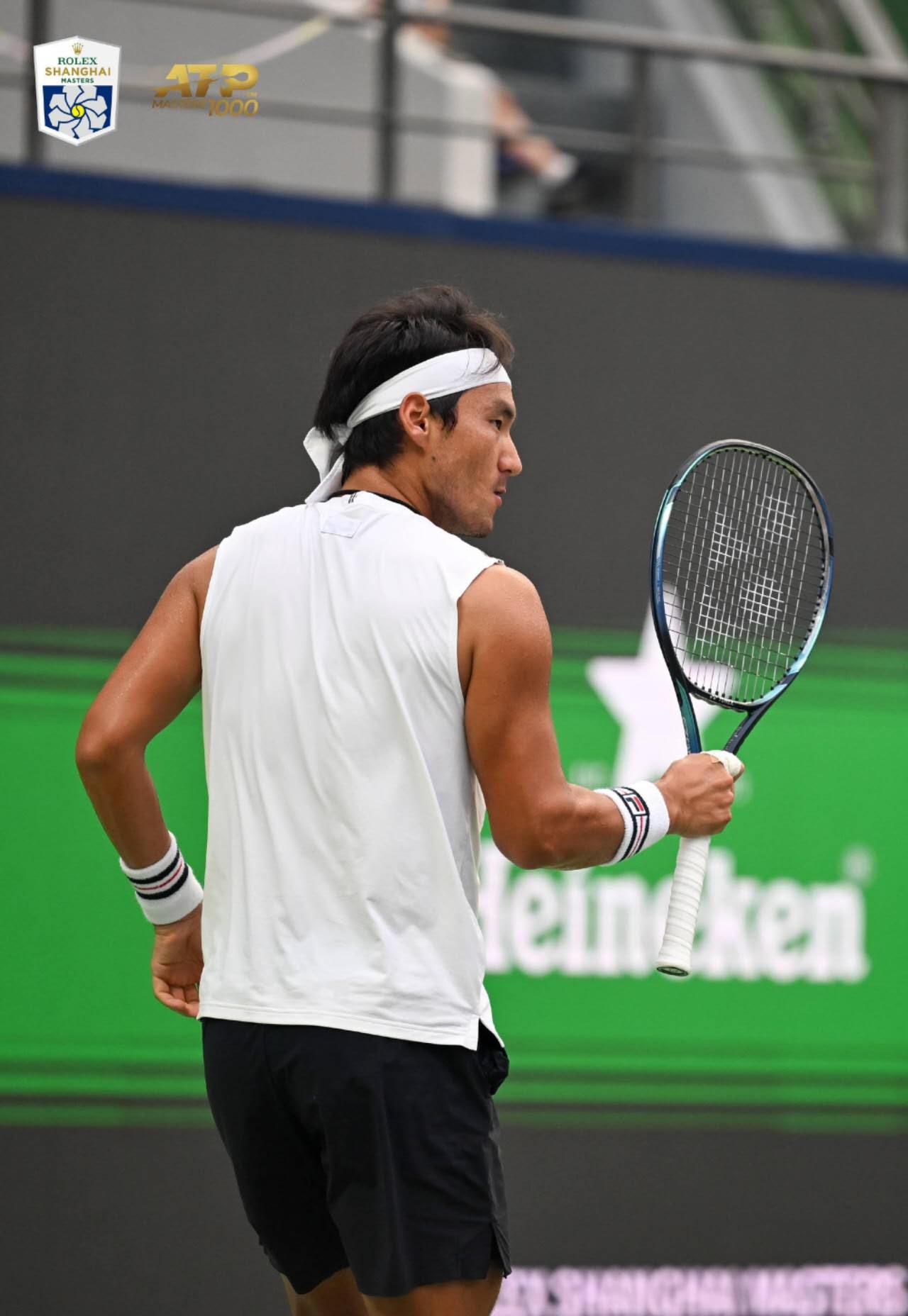
Once the match began, the high temperature and humidity in Shanghai clearly affected Bu Yunchaokete’s physical condition. He requested a medical timeout during the changeover in the third game of the second set. Cameras caught him having his blood pressure checked, indicating that his physical state was impacting his performance on court.
In the first set, Dalderi quickly found his rhythm. In the third game, the Italian broke serve first, then held serve comfortably for a 3-1 lead. Although Bu Yunchaokete fought to hold his serve and keep close on the scoreboard, he was unable to break back. Dalderi maintained steady pressure and sealed the set 6-4 by winning the tenth game on his serve.
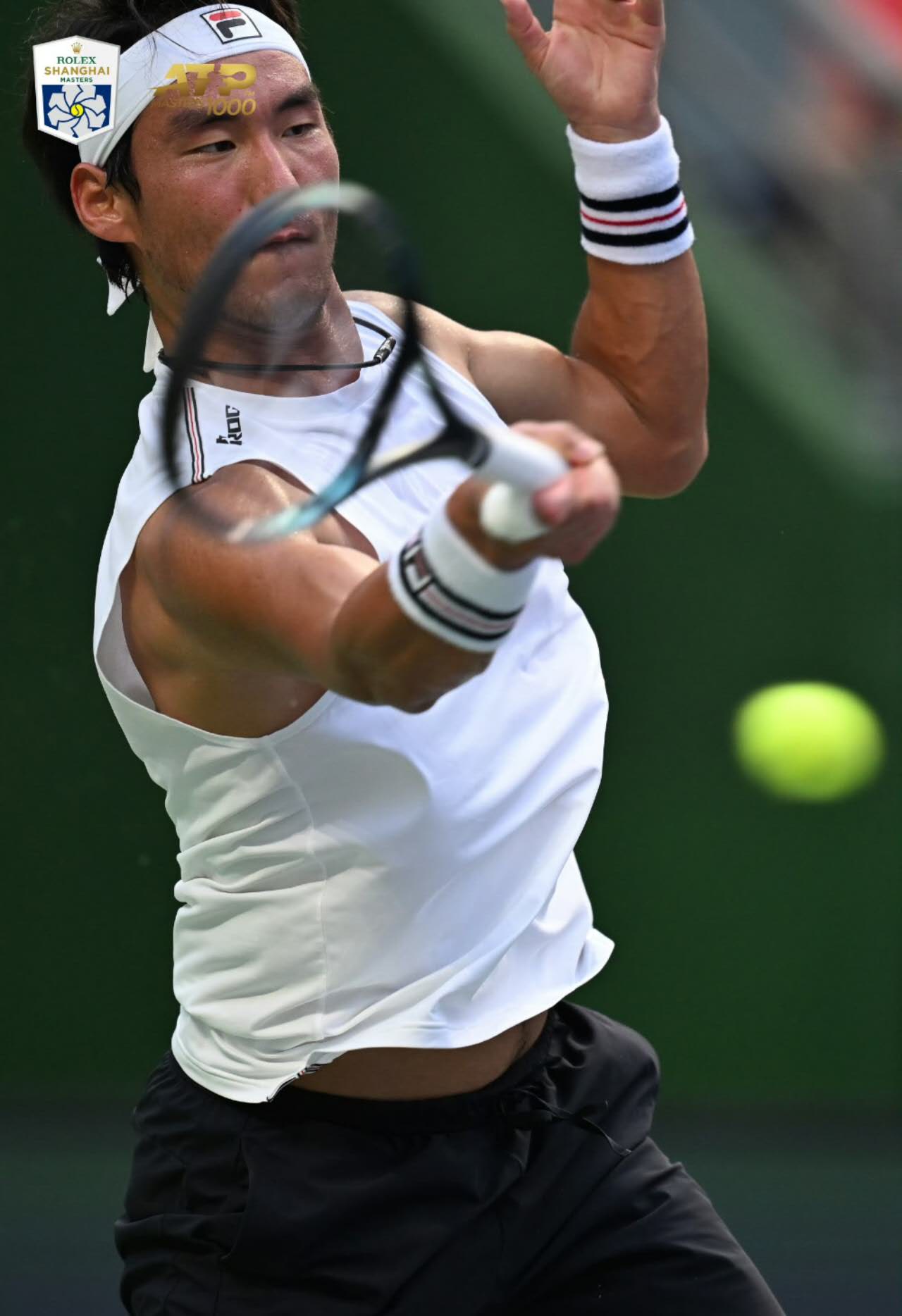
Statistics show Dalderi held the upper hand in key areas during the first set: he led in aces 5-3 and had 11 winners compared to Bu Yunchaokete’s 8. Both players had first serve success rates below 60%, but Dalderi performed better on crucial points.
At the start of the second set, Dalderi continued his strong form, breaking serve and holding to go up 2-0. Bu Yunchaokete, still hampered by his physical condition, could not find a way to break back. In the fifth game, Dalderi broke again in four straight points and then held serve without conceding a point, extending his lead to 5-1.
At this point, Bu Yunchaokete seemed to regain some rhythm. After holding his serve in the seventh game, which was critical as he had no margin for error, he won two consecutive games to narrow the score to 4-5, energizing the crowd.
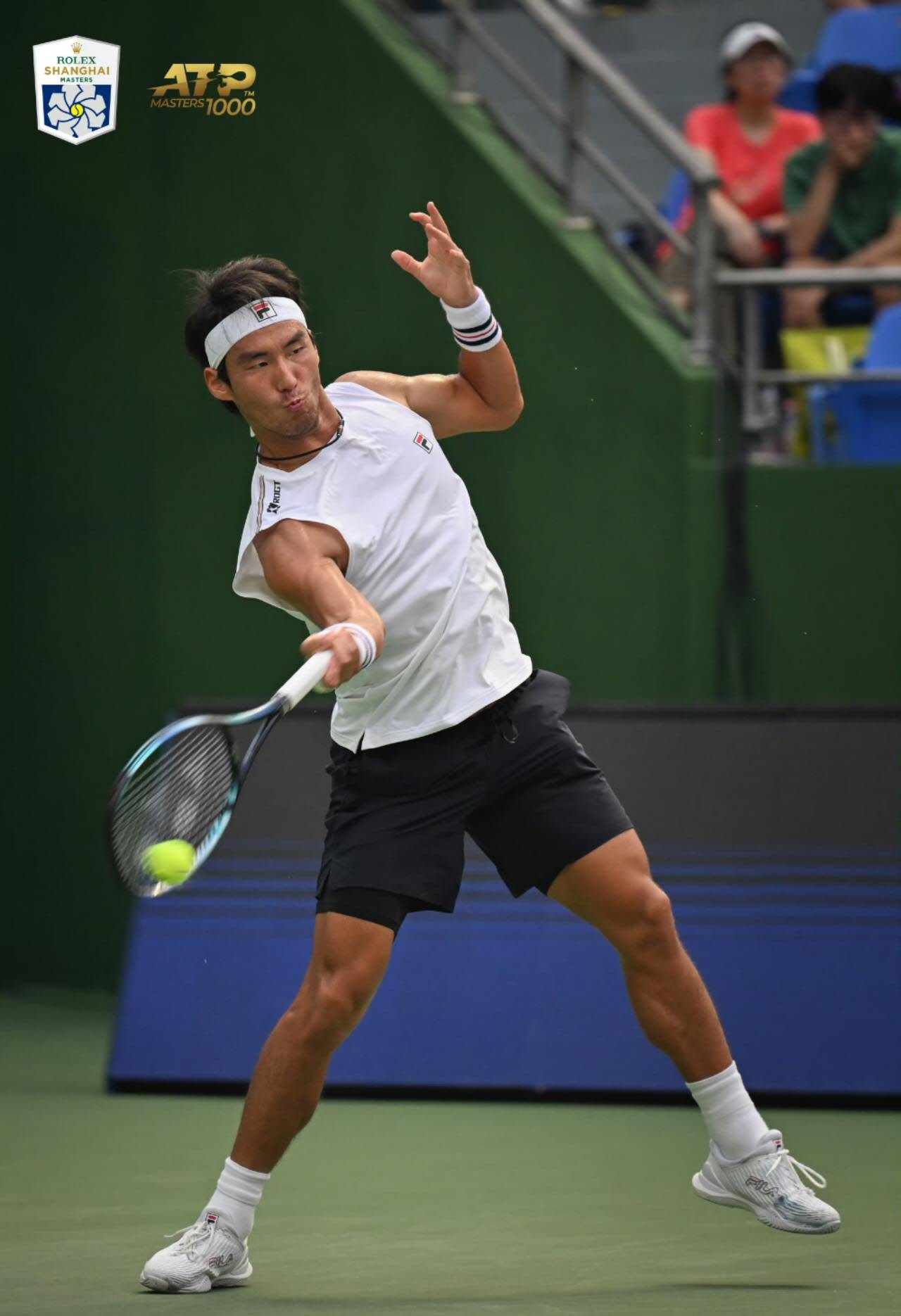
Despite trailing significantly, Bu Yunchaokete did not give up. He fought hard during Dalderi’s second match point on serve, demonstrating the resilience typical of Chinese players. However, Dalderi did not allow another chance and closed out the match 6-4 in the second set, winning 2-0 overall.
Although disappointed by the loss, most fans expressed understanding. One fan wrote on social media: “Even though he lost, finishing the match while physically unwell deserves respect. Rest well and come back stronger!”
In the post-match interview, Bu Yunchaokete elaborated on his physical discomfort. “I’m not sure if it was heatstroke; I felt unwell and my vision went dark,” he said.
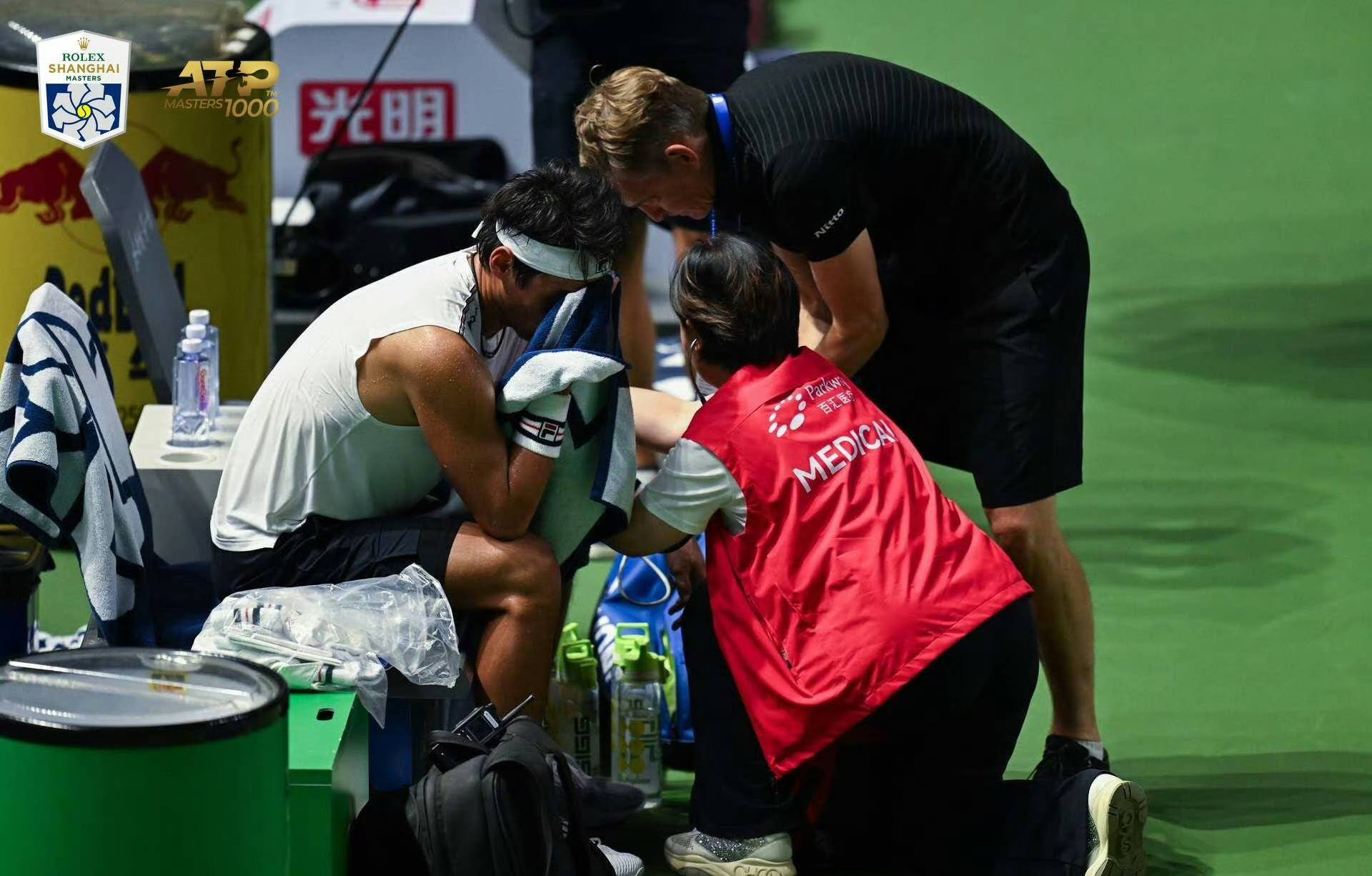
He explained it might be because “I’ve been playing both singles and doubles continuously for a month, from the Davis Cup to Hangzhou and Beijing, and the intensity these past few days has been very high.”
Reflecting on his overall Chinese season, Bu Yunchaokete summarized: “I’m improving. Hangzhou was a bit unfortunate, Beijing wasn’t great—both mentally and physically I was average—but I adjusted quickly here in Shanghai and performed better.”
Regarding the physical toll of the packed schedule, Bu Yunchaokete revealed his upcoming plans: “Because of fatigue, I probably won’t participate in the upcoming European indoor tournaments, maybe just the Almaty event, then I’ll rest in Asia.” He clearly stated he will “focus more on physical recovery and technical improvements to prepare for next year. I’ve played enough this year.”
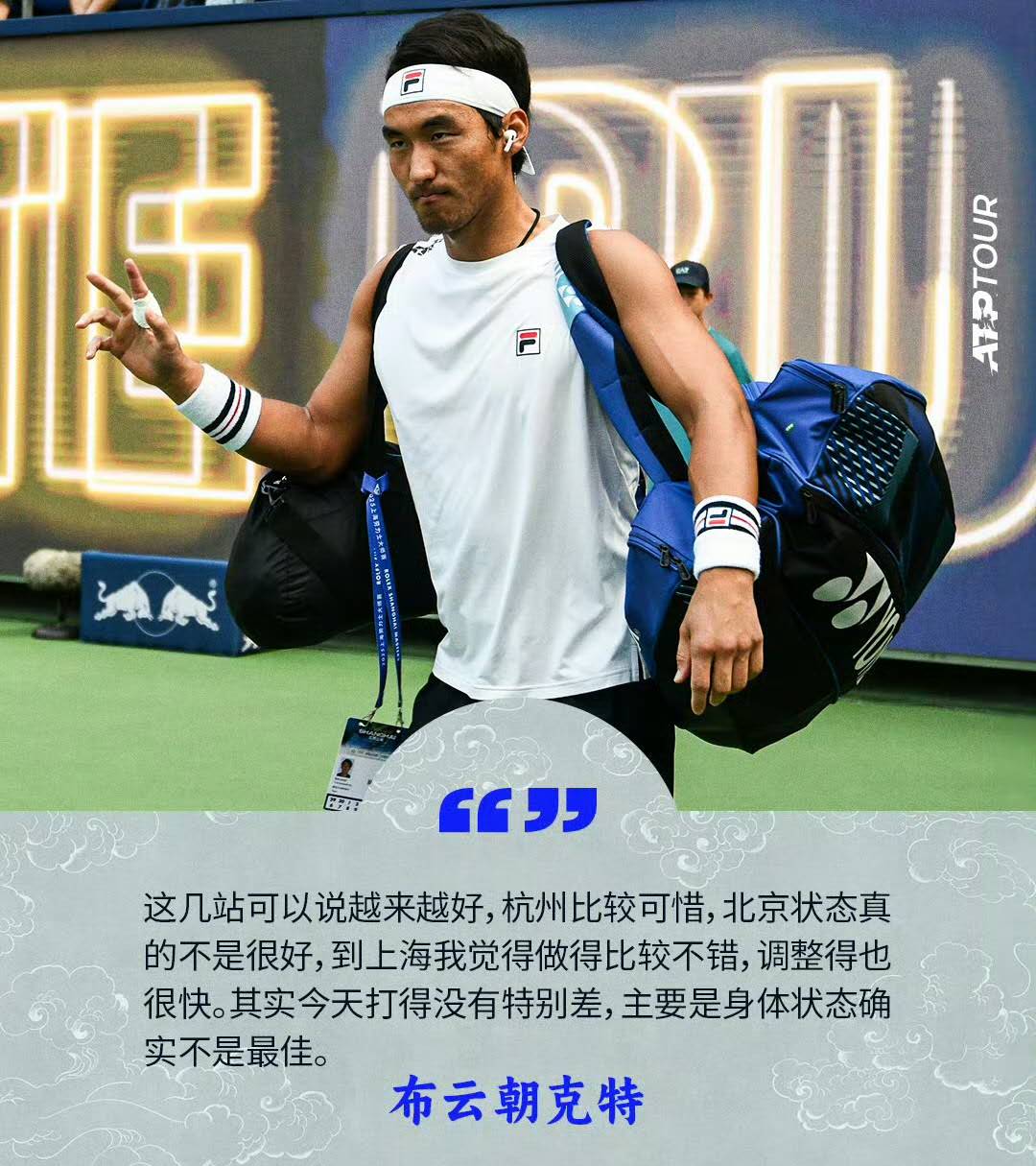
Looking ahead, he remained optimistic: “I’ve stayed healthy throughout this year, which shows I take care of my body. Occasional situations like today are acceptable because the schedule is really tight. Next year, I will adjust my schedule, especially during the Chinese season, and I believe I can do better.”
Fans fully supported Bu Yunchaokete’s decision. One wrote on social media: “Continuous matches are really exhausting; health comes first. Take a good rest!”
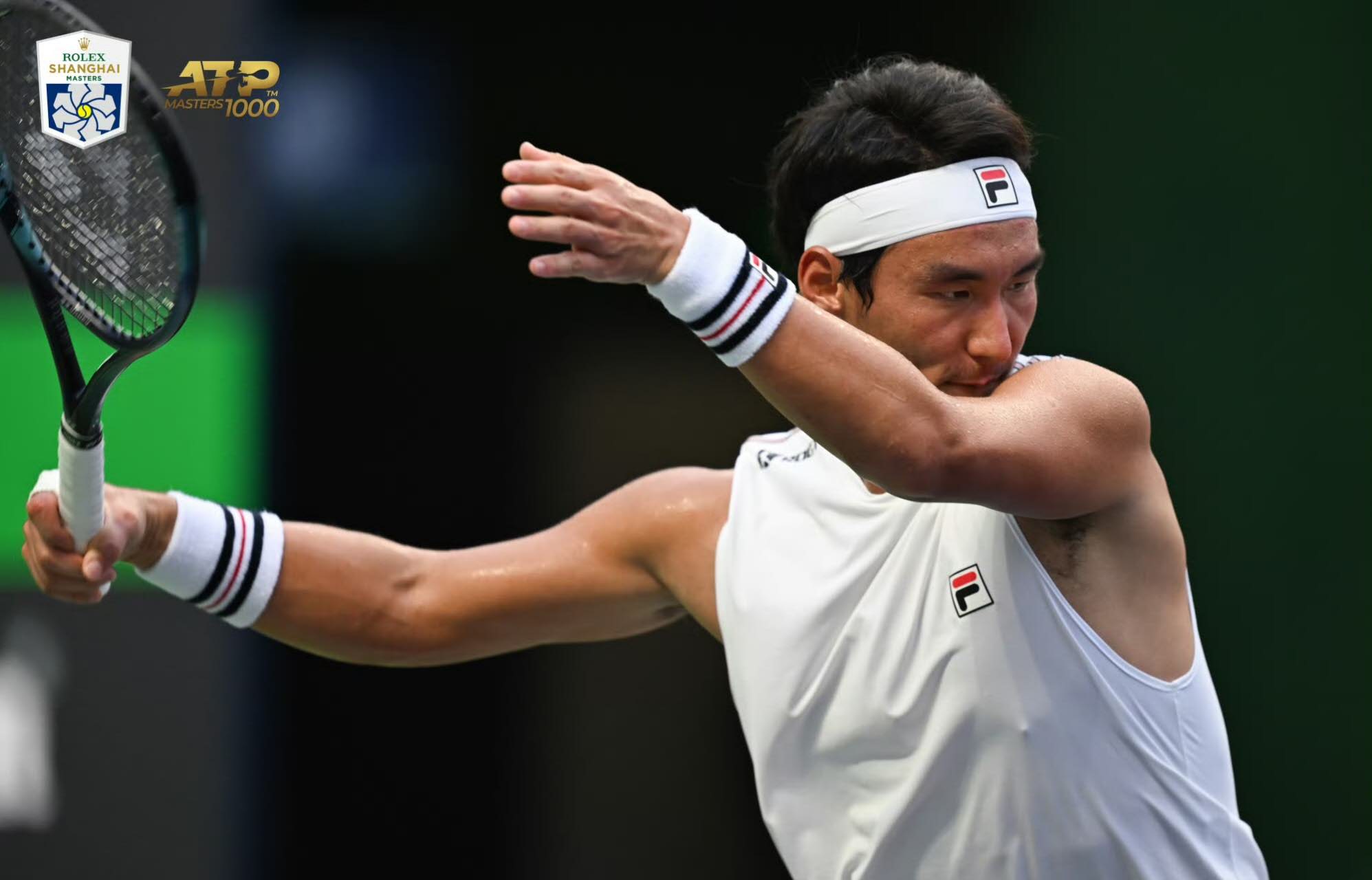
Many fans praised his choice to adjust his schedule. “A smart decision; your health is the foundation. Rest well and come back stronger!” commented one supporter. Another added, “Your progress since last year is obvious. Although this Chinese season had ups and downs, the overall trend is upward. Looking forward to a better you next year!”
With Bu Yunchaokete’s exit, all hopes for Chinese men’s singles at the Shanghai Masters now rest on Shang Juncheng. The intense schedule and physical strain faced by Chinese male tennis players were clearly evident in this match. Bu Yunchaokete’s Chinese season ended with a 1-3 record, but his development trajectory remains positive. As he said, “I’ve already done better than last year.”(Source: Tennis Home, Author: Lu Xiaotian)







 Links
Links
 Contact
Contact
 App
App


